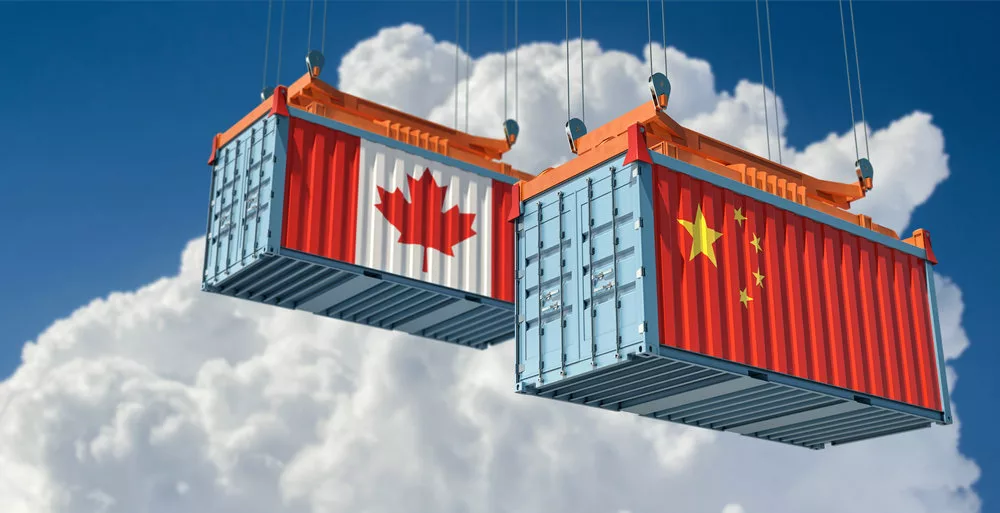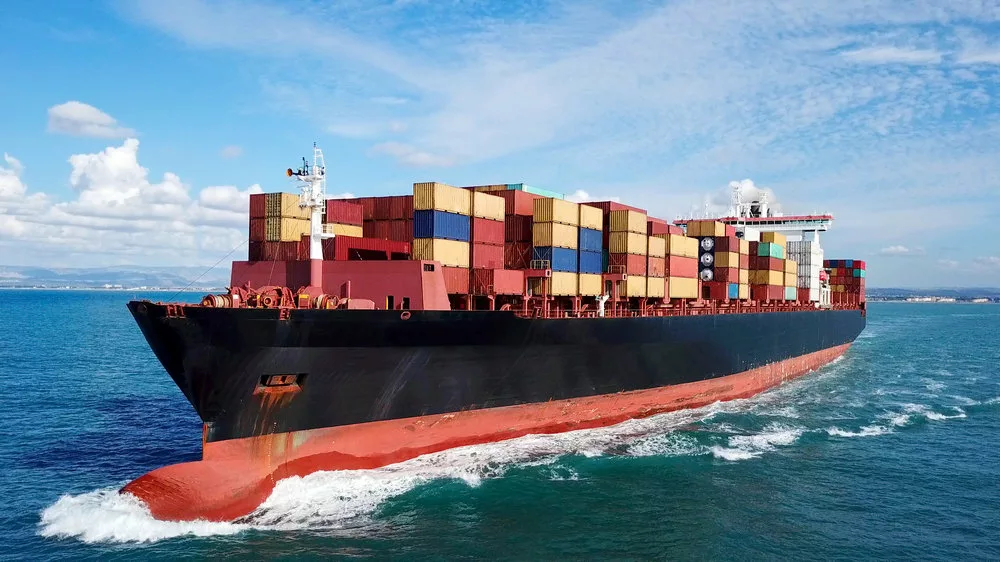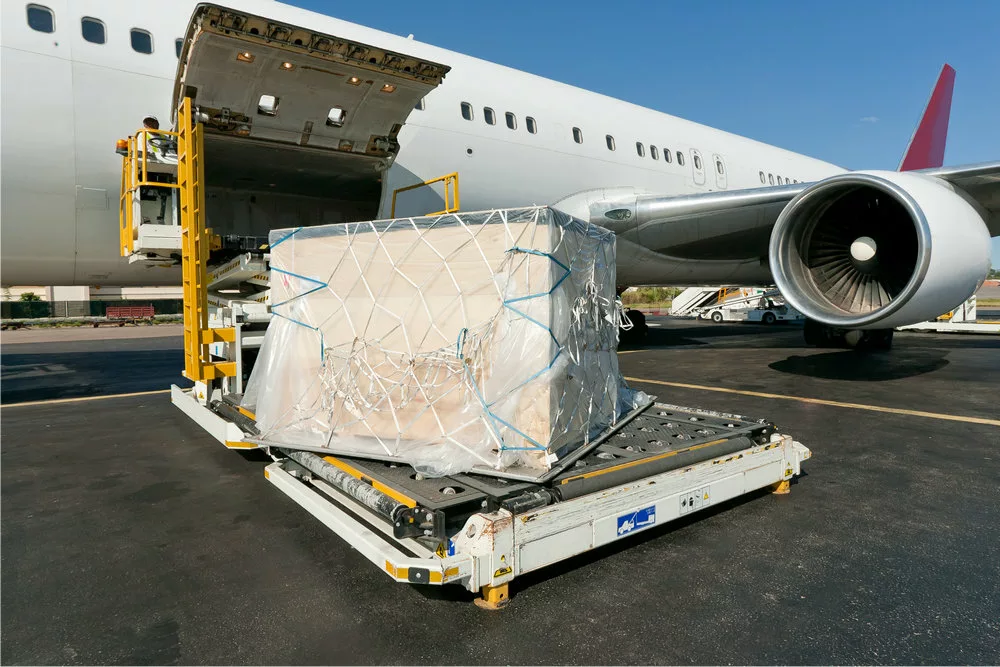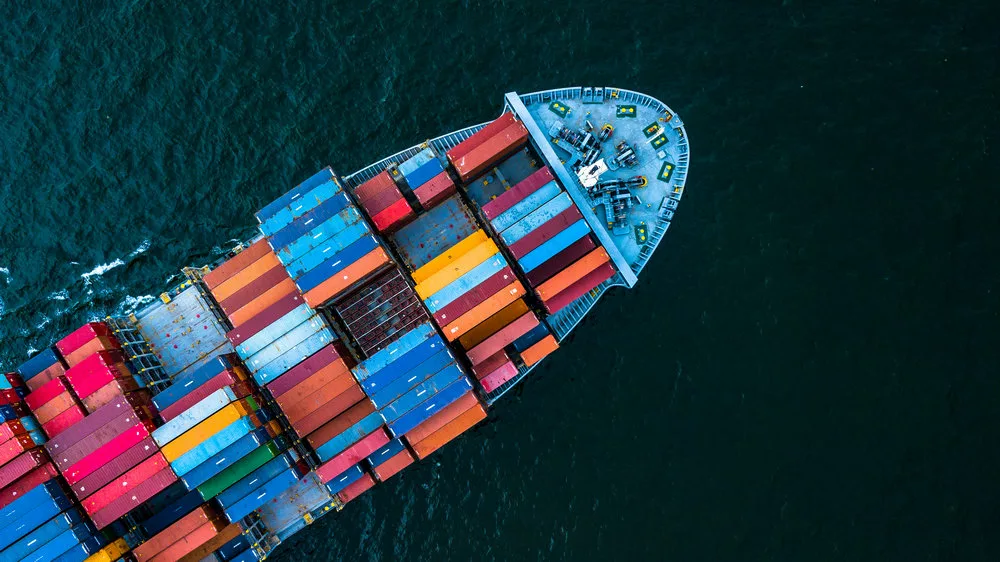As China has become a major manufacturing center for a wide range of products, efficient shipping from China to Canada is crucial. At Luckystar Logistics, we offer secure and timely international shipping to various destinations, including Canada. Our comprehensive shipping services from China to Canada encompass:
- Air Freight
- Sea Freight
- Door-to-Door Service
- ISO Tank Transport
- Hazardous Material Freight Shipping
- Port Services
- Land Freight
- Customs Clearance
- Warehousing Services
- Insurance Services
- Shipping Agent Assistance
We pride ourselves on providing cost-effective and punctual services. Our team will evaluate the specific requirements of your cargo and recommend the most suitable shipping method from China to Canada. Our expert agents are skilled in handling customs clearance and ensuring the safe and secure transit of your goods.
Table of Contents

Shipping Routes From China To Canada
Door To Door Shipping
There are multiple shipping routes from China to Canada, and one popular option is door-to-door shipping. At Luckystar, we focus on delivering your cargo safely and promptly to your destination using various methods, including door-to-door shipping. This service ensures your cargo is collected from the manufacturer and delivered directly to your doorstep.

For door-to-door shipping from China to Canada, we manage the entire shipping process, from picking up the shipment at the factory to delivering it to the specified address in Canada. The door-to-door shipping process involves the following steps:
1. Purchasing Goods and Products: Your responsibility is to find the desired goods manufactured in China, place an order, and make the payment. If you need help with ordering, contact us for assistance. We will assign a professional Chinese freight forwarder to verify that the goods you want to order are not on the prohibited goods list set by customs in China and the Canada Border Services Agency.
2. Hiring a Door-to-Door Shipping Company: Importing goods from another country can be challenging, so it’s best to hire a reputable and experienced door-to-door shipping company. Once you find a company offering safe and reliable solutions, sign a contract outlining the shipping process terms, including costs.
3. Picking Up Products and Shipping to Ports: The freight forwarder from the shipping company will collect the goods from the factory and transport them to the port for loading onto the preferred freight. For example, if using ocean freight, the goods are transported to the nearest seaport and loaded onto a ship for transit to Canada.
4. Customs Clearance: Before leaving China, your goods must clear customs. The freight forwarder submits all required documents to the customs clearance authorities. The customs agent checks the documents, confirms payment of customs duties, and inspects the cargo before allowing it to proceed with transit.
5. Freight Transit: After completing the customs process, the products are loaded into a container and transferred to the cargo vessel. Our freight forwarders communicate with the carriers to ensure your cargo has a spot on the vessel. Once all shipments are on board and the carrier has signed the bill of lading, the journey to the buyer’s warehouse or the customer’s final address begins.
6. Delivery to Your Doorstep: Our freight forwarders handle customs clearance at the destination port. They pay tariffs and any applicable goods and services tax to clear customs. The cargo is then unloaded, packed into a truck, and transported directly from the port to your door. Upon arrival, you’ll need to sign and accept the receipt after inspecting the goods before they’re offloaded.
Sea Freight And Container Shipping
Luckystar Logistics Services also offers sea freight and container shipping for goods traveling from China to Canada. Our sea freight services share similarities with air freight, but with longer shipping times. However, sea freight is often more cost-effective and suitable for shipping a wider variety of goods, making it an attractive option for many.
We have developed a reliable method for shipping full container loads or less-than-container-load (LCL) shipments from China. With a range of container types available, we can even handle delicate goods that require extra care, such as food products. Additionally, sea freight costs are generally more affordable, allowing you to save on overall shipping expenses.

Our expert support services for customs clearance make exporting from China to Canada even more seamless and cost-effective. To ensure timely and reliable delivery of your cargo through sea freight and container shipping, we consider the following factors:
1. Customer Request Confirmation: Upon receiving a customer request to ship goods from China to Canada, we conduct thorough checks to confirm the order, products, destination port, potential port congestion, shipping costs, and required documentation for customs clearance. We also verify that the goods are legal in the importing country and comply with all international laws and customs regulations.
2. Safe Packaging of Products: Our freight forwarding company ensures goods are securely packaged to prevent damage during transit. Cartons are the most common packaging option for goods shipped from China to Canada, as they can be easily recycled and reused. Containers further protect cargo from moisture and damage during shipment, while cartons facilitate efficient customs inspections.
3. Plastic Packaging and Standard Pallets: Luckystar Logistics also utilizes plastic packaging and standard pallets for shipping cargo. In some cases, plastic packaging may be preferred for long ocean freight journeys. Shipping charges for certain products in plastic packaging may vary, but we always adhere to the terms of the commercial invoice and other contractual agreements.
4. Pallets for Improved Shipping: Premium pallets enhance the shipping process, particularly for full container loads. Pallets are cost-effective and reduce the risk of damage during sea freight. We also use pallets for LCL shipping, though freight costs and cargo insurance may vary.
In sea freight, factors such as cargo weight and insurance influence shipping costs. Contact us for a quotation on shipping your cargo from China to Canada using sea freight and container shipping.
Air Freight
At Luckystar, we offer safe and reliable air freight services for our clients and partners in Canada. Our air freight services ensure that your cargo arrives on schedule and in excellent condition. We provide various options, such as express shipping, door-to-door deliveries, airport-to-airport, and chartered services, to cater to your specific needs.

We have established a dependable network with our Canadian partners, collaborating with several airlines to facilitate smooth air freights from China. This ensures the safe transportation of various types of cargo, including hazardous goods, from China to Canada.
There are several reasons to consider using our air freight services:
1. Fastest mode of delivery: Air freight is the quickest shipping method, often delivering cargo within a few days, making it ideal for time-sensitive cargo or companies with strict deadlines.
2. Reliable delivery schedule: Air transport follows strict schedules, ensuring timely cargo delivery via air freight, which is particularly convenient for express shipping.
3. Wide delivery coverage: Our extensive network enables us to rapidly deliver goods from China to any location in Canada, using various airports to ensure timely cargo delivery.
4. Low insurance premiums: Due to the shorter distance and time taken, air freight insurance premiums are lower, offsetting some of the higher air freight costs.
5. Security: Strict security procedures at airports and during transit make air freight one of the safest cargo transportation methods.
6. Flexibility: Air freight offers great flexibility with options for direct and indirect flights and door-to-door delivery services.
7. Reduced inventory cost: Air freight allows businesses to deliver goods to market faster, reducing the costs associated with holding inventory.
8. Reduced packaging cost: Air shipments typically require less handling and movement than sea or land transport, resulting in lower packaging costs.
9. Eco-friendly: Although air freight has a larger carbon footprint than other transportation methods, it uses less energy per unit, potentially reducing overall greenhouse gas emissions.
We also provide an efficient tracking system for air freight cargo from China to Canada. Our company employs a live tracking mechanism that offers real-time data on your cargo’s location to prevent loss and facilitate quick recovery.
Shipping Costs from China to Canada
Several factors can significantly impact the shipping cost from China to Canada, including the size and weight of the consignment, the mode of transportation (air or sea), the origin and destination locations, and the chosen shipping company or freight forwarder.
Air freight generally costs more than sea freight but offers faster delivery. Prices for air freight can range from a few dollars per kilogram to several dollars per kilogram, depending on the package’s size and weight. Sea freight, on the other hand, is typically less expensive but takes longer to deliver. The cost of sea freight per container can range from a few hundred to several thousand dollars, depending on the size, weight, and chosen shipping company.
It’s essential to remember that the total cost of importing products from China to Canada includes more than just shipping expenses. Additional expenses to consider include customs charges, taxes, and fees. Upon arrival in Canada, items may also incur further transit costs, such as warehousing or inland transportation.
FCL Container Freight Rates
Several factors affect the standard FCL (Full Container Load) container freight rate from China to Canada, such as origin and destination ports, container size and type, shipping company or freight forwarder, and market demand. As of September 2022, the average FCL container freight cost from China to Canada ranged between $1,500 and $3,000 USD per container, depending on the factors mentioned. Keep in mind that freight rates may change due to various reasons, including fluctuations in fuel prices and global market conditions.
You can also contact us for a detailed quotation for your cargo shipment. We will offer the latest quotes from multiple shipping lines to compare prices and services.
LCL Consolidation Sea Freight Rates
Several factors can affect the standard LCL (Less than Container Load) consolidation sea freight rates from China to Canada, including origin and destination ports, shipment size and weight, shipping line or freight forwarder, and market demand. As of September 2022, the average LCL consolidation sea freight rate from China to Canada was between $100 and $200 USD per cubic meter. Keep in mind that freight rates may change due to various reasons, including fluctuations in fuel prices and global market conditions.
LCL consolidation sea freight prices are typically determined based on the shipment volume (measured in cubic meters) or shipment weight (measured in kilograms). The actual cost per CBM or kilogram may vary depending on the shipping line or freight forwarder used.
Consider sending us a request for a quotation on potential rates for your cargo, depending on your needs. We (Luckystar) will offer the best shipping solution for you.
Air Freights
The typical rates for air freights from China to Canada can vary significantly depending on factors such as origin and destination locations, shipment weight and volume, type of products being shipped, urgency, and the airline or freight forwarder used. As of September 2021, the average cost of air freight from China to Canada was about $3 to $10 USD per kilogram. Rates can change due to factors like demand, fuel prices, and other transportation costs.
Remember that air freight is often more expensive than other transportation methods like sea or rail. Air freight is usually chosen when speed is crucial or when shipping small, valuable items.
Air freight charges are determined based on the consignment’s weight and volume, with rates often calculated based on the higher of the two. Some airlines or freight forwarders may also impose minimum charge limitations for air freight shipments.
As with any shipping service, it’s advised to get current estimates from multiple companies to compare prices and services before choosing a provider. Consider sending us a quotation request for our air freight rates.
In conclusion, shipping costs from China to Canada can vary greatly depending on the mode of transportation, shipment size and weight, and the shipping company or freight forwarder chosen. It’s essential to consider additional costs such as customs fees, taxes, and inland transportation when calculating the total cost of importing goods.
Always request the latest quotes from multiple shipping lines or freight forwarders to compare prices and services before selecting a provider. This will help you make an informed decision and ensure you receive the best value for your shipping needs. Don’t hesitate to contact us for a comprehensive quotation tailored to your cargo shipment requirements.
Shipping Durations from China to Canada
Shipping durations from China to Canada depend on the chosen mode of transport, which could be air, sea, or rail freight.
Ocean Freight
Various factors can influence the typical transit time for maritime freight from China to Canada. These factors include the origin and destination ports, the shipping company, the vessel type, and potential shipping schedule delays due to adverse weather or port congestion.
Generally, ocean freight transit times from China to Canada can range from around 14 to 30 days, depending on the specific ports and shipping lines involved. Although ocean freight is often more affordable than other modes like air freight, it usually takes longer to arrive at its destination.

Please note that transit times are only estimates and can change due to factors like shipping schedules, port congestion, customs clearance procedures, and other elements that may impact the delivery speed. To minimize delays or disruptions, always confirm the latest transit time estimates with the shipping line or freight forwarder and plan accordingly.
Air Freight
The transit time for air freight from China to Canada can be affected by factors such as the origin and destination locations, the airline used, the type of goods being transported, and any potential delays in air traffic or customs clearance procedures.

On average, air freight transit times from China to Canada range from about 2 to 7 days, depending on the specific airports and airlines involved. Although typically more expensive, air freight is often faster than ocean freight.
Keep in mind that transit times are only estimates and can vary based on the airline’s schedule, customs clearance procedures, and other factors that may impact delivery times. To avoid delays or disruptions, always confirm the latest transit time estimates with the airline or freight forwarder and plan accordingly.
Express Shipping
Transit times for express shipments from China to Canada can be affected by factors such as the origin and destination locations, the courier service chosen, the type of goods being shipped, and potential delays in customs clearance procedures.

The average transit time for express shipments can range from 2 to 5 days, depending on the specific cities involved and the courier service used. While express shipping can be more costly, it is generally faster than both air and ocean freight.
Remember that transit times are only estimates and may change based on the courier company’s schedule, customs clearance procedures, and other factors that could impact delivery times. To minimize delays or disruptions, always confirm the latest transit time estimates with the courier service or freight forwarder and plan accordingly.
Selecting the Most Affordable Shipping Method from China to Canada
Determining the cheapest way to ship goods from China to Canada can be challenging, as the most cost-effective shipping method will depend on various factors. These include the package’s size and weight, the delivery urgency, the origin and destination locations, and any unique requirements or restrictions for the shipment.
Sea freight is often the most budget-friendly option for transporting larger and heavier items from China to Canada. However, it usually has a longer transit time compared to air or express shipping. If cost is the primary concern and delivery time is not crucial, sea freight might be the best choice.
On the other hand, express and air shipping tend to be more expensive than ocean freight but are preferable when time is the main priority. The need for expedited delivery can make these shipping methods costlier, as the process has to be accelerated.
When choosing a shipping method, it is important to remember that the cheapest option may not always be the most efficient or dependable. Factors such as delivery times, insurance, and customs clearance procedures should be taken into account. Before deciding on a shipping method, it is recommended to obtain quotes from multiple shipping companies and evaluate the overall costs and services offered.
Guide to Importing Goods from China to Canada
1. Research Trade Laws:
Both China and Canada have specific rules, regulations, and policies governing the import and export of goods. Research trade laws to understand the requirements for the type of goods being imported, their origin, and their intended use. Non-compliance with trade regulations can result in fines, penalties, and the seizure of goods. Importers must also ensure their products adhere to Canadian product safety standards and regulations.
2. Choose a Suitable Shipping Method:
Selecting the right shipping method ensures your imports arrive quickly, cost-effectively, and securely. Consider factors such as cost, transit time, security, and customs clearance when choosing a shipping method. The type and weight of the product can also influence your decision.
3. Find a Supplier:
Locate a reliable Chinese supplier who can provide the products you want to import. Trade shows, online marketplaces, and personal recommendations can help you find a suitable supplier. Alternatively, our company can help you find the best manufacturer for your needs.
4. Estimate Tax Liability:
All imports are subject to taxes and customs upon arrival in Canada. Accurately calculating your tax liability helps you budget and avoid unforeseen expenses and delays in the customs clearing process. The Canadian government imposes taxes and fees, such as the Goods and Services Tax (GST), Harmonized Sales Tax (HST), and Customs Duty, which vary depending on the type of product, country of origin, and item value.
5. Customs Clearance:

Navigating the customs clearance process can be challenging. It is recommended to work with a customs broker or freight forwarder familiar with Chinese and Canadian customs laws to guide you through the process. Ensure you have all the necessary documentation for successful customs clearance.
Consider hiring a freight forwarding company to assist you with all the steps of importing goods from China to Canada. A freight company like ours has an extensive network of stakeholders who can help streamline the shipping process.
Canadian Customs Clearance Explained
Navigating the customs clearance process in Canada involves several factors, including the following:
1. Required Documents for Customs Clearance:
Documents necessary for customs clearance in Canada typically include:
- Commercial invoice
- Bill of lading
- Packing list
- Certificate of origin
- Import permits and licenses
- Customs bond
These documents may vary depending on the type of cargo and the freight method. Ensure all required documents are accurate and complete to avoid delays at customs.
2. Understanding the Customs Process:
The Canada Border Services Agency (CBSA) oversees the customs process in Canada, ensuring imported goods comply with Canadian regulations and requirements. The customs clearance process involves the following steps:
- Arrival of goods: Shipments arrive at a Canadian port of entry and are held in a secure location until customs clearance is complete.
- Document review: A CBSA agent assesses the submitted documents, determining the value of goods, product type, country of origin, and applicable taxes and customs duties.
- Goods examination: The CBSA agent may inspect the cargo to verify the accuracy of the documents.
- Payment of taxes and duties: After verifying the documents and cargo, pay the applicable taxes and duties to release the shipment.
- Release of goods: Once duties and taxes are paid, the CBSA agent releases the shipment for delivery to the specified destination.
The customs clearance process may vary depending on the goods and their country of origin. In some cases, you may need to provide additional documentation, such as inspection certificates and permits.
Understanding Canada’s Import Rules and Regulations
When shipping goods from China to Canada, it’s essential to be aware of the following import rules and regulations:
- Goods and Services Tax (GST): Importers must pay a 5% GST on all imported goods.
- Harmonized System (HS) Classification: Goods must be classified according to the HS system to determine applicable taxes and duties.
- Duty Rates: Importers must pay duty rates based on the HS classification, type of goods, and country of origin.
- Export Controls: Special permits and licenses are required for importing controlled materials, such as firearms and nuclear substances.
- Product Safety and Labeling: Imported goods must meet Canada’s safety requirements and bilingual labeling regulations.
- Environmental and Health Regulations: Strict rules apply to importing products that may pose environmental or health risks, and special permits may be required for hazardous materials.
- Anti-Dumping and Countervailing Measures: Importers must comply with Canadian regulations to prevent goods from being dumped at unfairly low prices or through government subsidies.
Failure to adhere to these rules and regulations can result in delayed goods, fines, or other penalties.
Items Prohibited or Restricted for Import to Canada
Certain goods are prohibited or restricted from being imported into Canada due to public safety, health, and security concerns. These include:
- Firearms, weapons, and ammunition
- Illegal drugs and narcotics
- Endangered animal species and specific animal products, such as ivory
- Certain plant types and products
- Obscene materials, hate propaganda, and child pornography
- Counterfeit products, such as fake designer clothing
- Some food items and products containing specific meats, dairy, or eggs
- Cultural property, like artifacts
- Certain chemicals and hazardous substances
- Products that infringe on intellectual property rights
If caught importing prohibited items, authorities will seize the goods and may impose fines and penalties.
Essential Shipping Documents and Incoterms for Imports from China to Canada
When importing goods from China to Canada, it’s important to be familiar with the necessary shipping documents and incoterms. Some key documents include:
- Commercial invoice
- Bill of lading
- Packing list
- Certificate of origin
- Insurance certificate
Incoterms are internationally recognized trade terms that outline the responsibilities and obligations of buyers and sellers in global transactions. Examples of common incoterms include FOB (Free On Board) and DDP (Delivered Duty Paid).
